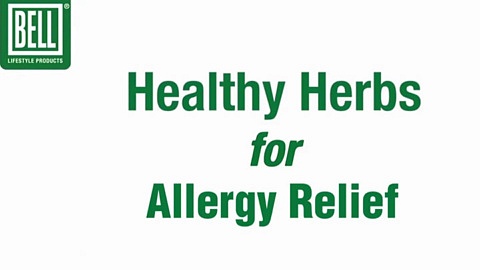Seasonal allergies, also known as hay fever occurs when the body’s immune system reacts to an external substance such as pollen, resulting in a range of...
Allergy Season
As the spring season arrives many of us rejoice and are excited for more sunshine, birds singing and flowers budding. However, the warmer months can also bring on pollen and with that, seasonal allergies.
Pollen is released from tree buds, grass and many plants into the air to help fertilize other plants. As the pollen floats around in the air it can make its way into our noses and throats, triggering an allergic immune reaction. Pollen is highest between April and August in Canada. This immune reaction causes various symptoms such as sneezing, congestion, runny nose, itchy watery eyes, sore throat and more. Individuals appear as if they have a cold or flu when it’s really just pollen rather than a virus that triggers the onset of these respiratory symptoms.
Many sufferers prefer to stay indoors in an attempt to reduce their exposure to pollen. Additionally, daily anti-histamine medications and lots of tissue paper are often on hand to help deal with those pesky symptoms while enjoying the outdoors. Seasonal allergy medications come in tablet, spray and liquid, eye drop forms. Some types of allergy medications can make people feel drowsy and are only effective for a certain amount of time, which often means they are needed on a daily basis all season long.
Natural options to help address seasonal allergies are available. A number of herbs, vitamins and natural compounds can help with allergic symptoms.
Quercetin: naturally found in onions, red wine, apples and many plants, quercetin is classified as an antioxidant compound that gives certain plants their vibrant colours. Quercetin helps with seasonal allergy symptoms by reducing the release of histamine, the chemical released by the immune system that causes itchiness and sneezing due to allergies.
Vitamin C: an essential vitamin that offers many benefits, including seasonal allergy symptoms. Vitamin C is a potent antioxidant that is important for maintaining the integrity of the tissues that line the mouth, nose and throat. Additionally, Vitamin C can help maintain and repair damage to the cells that line the mouth and nose that may occur with constant sneezing and inflammation.
Holy basil: commonly known as Tulsi and commonly utilized in Ayurvedic medicine, holy basil is known for its immune balancing actions on the immune system. The leaf portion naturally contains various compounds that can help ease congestion, a common symptom associated with seasonal allergies.
Rosemary: this aromatic herb is well known for its culinary use, brightening up roasted potatoes, breads soups and meats. Rosemary contains rosmarinic acid, a natural compound that is also found in other herbs such as perilla, sage and lemon balm. Rosmarinic acid can help reduce allergic symptoms, such as runny nose and itchy watery eyes. So, the next time you enjoy a dish prepared with rosemary leaves, you may notice some respiratory benefits as well.
The next time you get hesitate to get ready to dig into your garden, open up a window, explore a flowering meadow or simply enjoy an outdoor patio consider adding some natural options to your anti-histamine allergy regimen to help you enjoy the great outdoors.
Related Posts
Allergic reactions are often unexpected and can occur during any season. It kicks in when the immune system triggers chemicals, particularly histamines, to...
While spring is a welcome change from the dreariness of winter, it comes with its own challenges for many: allergies. So what causes these irritating symptoms?...
Allergic reactions are often unexpected and can occur during any season. It kicks in when the immune system triggers chemicals, particularly histamines, to...
While spring is a welcome change from the dreariness of winter, it comes with its own challenges for many: allergies. So what causes these irritating symptoms?...
Categories
- Allergy Relief
- Bell Lifestyle News
- Brain and Vision Health
- Depression
- Digestive Health
- Eating Healthy
- Energy Boosts
- Fitness
- Foods for Energy
- Heart and Lung Health
- Herbs
- Immune System Support
- Lifestyle
- Men's Health
- Mental
- Motivation
- Natural Remedies
- Nutrition
- Pain Relief
- Physical
- Recipes
- Relationships
- Sexual Health
- Skin and Hair Health
- Sleep Health
- Social
- Stress Relief
- Uncategorised
- Videos
- Weight Management
- Women's Health
- Your Wellness Now
Follow us on Twitter
#90 Bladder One for Women™ is a convenient one-a-day capsule for urinary tract health, featuring herbal extracts in… twitter.com/i/web/status/1…
May 2023Urinary tract infections - UTI: To treat or prevent? That is the question. Find out more about causes and treatme… twitter.com/i/web/status/1…
May 2023"How you feel is very important to how you look. Healthy equals beautiful." - Victoria Principal #womenshealth https://t.co/OPShoEbOXb
May 2023
© Copyright 2024. All rights reserved.





